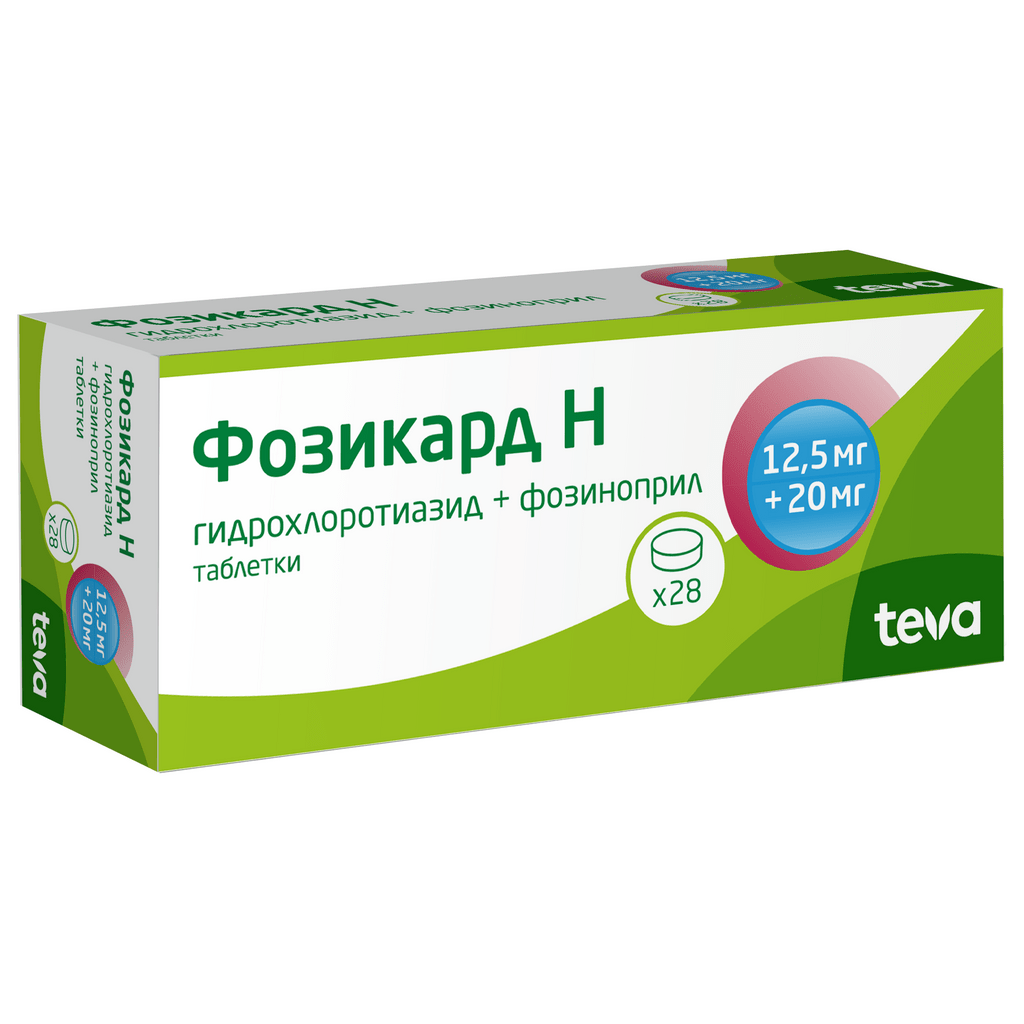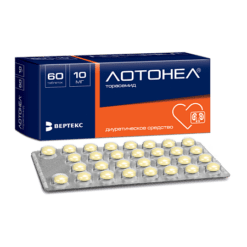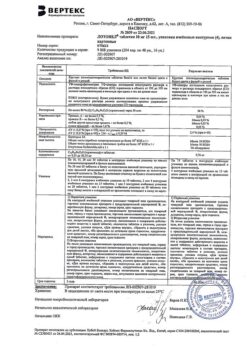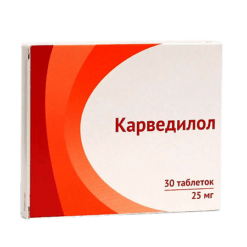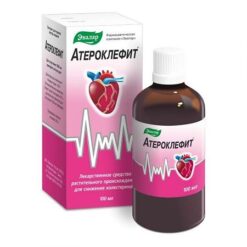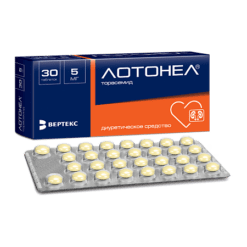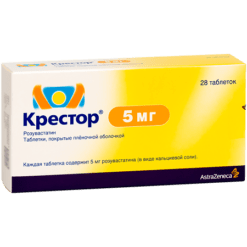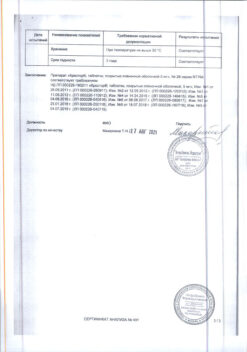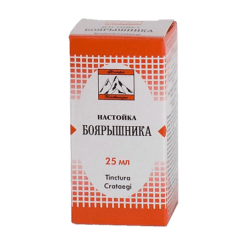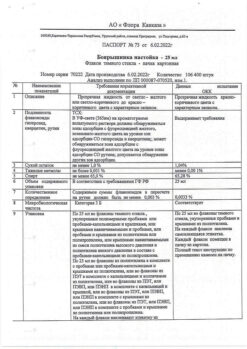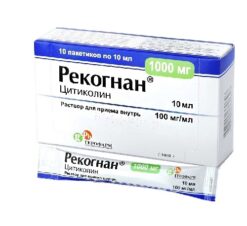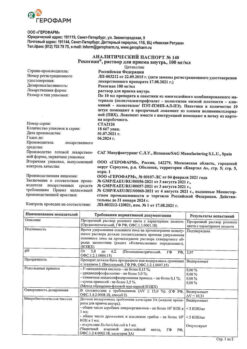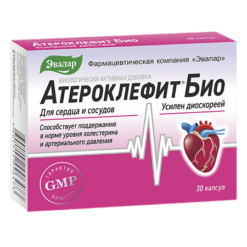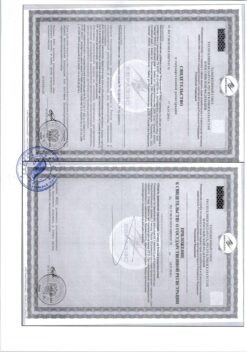No products in the cart.
Fozicard N, tablets 12.5mg+20 mg 28 pcs
€19.29 €16.07
Description
Fosicard H has hypotensive, vasodilatory, diuretic, and potassium-saving effects.
Pharmacodynamics
The active metabolite, fosinoprilat, is formed in the body from fosinopril, which prevents the conversion of angiotensin I to angiotensin II. It decreases RPS and systemic BP. The drug inhibits the synthesis of aldosterone and inhibits tissue ACE. After oral administration, BP reduction begins in 1 hour, reaches maximum values in 2-6 hours. The hypotensive effect lasts for 24 h after one dose per day. Hydrochlorothiazide acts on the mechanism of reabsorption of electrolytes, potassium ions and hydrocarbonate. It increases aldosterone activity and decreases serum potassium ion concentration. Fosinopril and hydrochlorothiazide have additive effects. Fosinopril reduces the loss of potassium ions caused by hydrochlorothiazide administration.
Pharmacokinetics
The pharmacokinetics of fosinopril sodium and hydrochlorothiazide when taken concomitantly are not different from those when they are administered separately. After oral administration, absorption of fosinopril sodium is approximately 30-40%, of which 50-100% is hydrolyzed in the liver to fosinoprilate, which has pharmacological activity. The degree of absorption of fosinopril is independent of food intake, but the rate of absorption may be delayed. In impaired hepatic function, the rate of hydrolysis may be delayed, while the degree of hydrolysis does not change markedly. Cmax of fosinopril in plasma is reached after approximately 3 h and is independent of the dose of fosinopril taken. Fosinopril has linear pharmacokinetics. Fosinoprilat is highly bound to plasma proteins (90-95%) and slightly bound to cellular components of the blood. It has a relatively small volume of distribution. In patients with arterial hypertension with normal renal and hepatic function, the T1/2 of fosinoprilat is approximately 11.5 h. After oral administration, the absorption of hydrochlorothiazide is 60-80%. Cmax of hydrochlorothiazide in blood is reached 1-5 hours after oral administration. Binding to plasma proteins is 64%. Hydrochlorothiazide is not metabolized and is rapidly excreted through the kidneys. T1/2 is 5-15 h.
Renal insufficiency: in renal insufficiency, absorption, bioavailability and binding of the drug to plasma proteins do not change significantly. Total clearance of fosinoprilat in patients with renal failure is almost 50% lower than in patients with normal renal function. Since excretion through the liver with bile partially compensates the decrease in excretion through the kidneys, clearance of fosinoprilat does not differ significantly in patients with moderate renal failure from that in patients with severe renal failure. In patients with renal impairment, there is a moderate increase in AUC (less than 2-fold compared to that in patients with normal renal function). Fosinoprilat clearance in hemo- and peritoneal dialysis is on average 2 and 7% compared to urea clearance.
Hepatic impairment: The degree of hydrolysis of fosinoprilat in patients with moderate hepatic impairment is slightly reduced, although the rate of hydrolysis may be decreased. The maximum concentration and AUC of fosinoprilat are higher in patients with hepatic impairment after the first dose, but this difference is not clinically significant with repeated doses.
Indications
Indications
Arterial hypertension.
Active ingredient
Active ingredient
Composition
Composition
1 tablet contains:
acting ingredients:
fosinopril sodium 20 mg,
hydrochlorothiazide 12.5 mg,
auxiliary substances:
Lactose monohydrate;
Sodium croscarmellose;
Pregelatinized starch (starch 1500);
Glycerol dibegenate;
PB-23601 pigment mixture:
Titanium dioxide,
Lactose monohydrate,
iron oxide yellow,
iron oxide red
How to take, the dosage
How to take, the dosage
Fosicard N is taken orally, regardless of meals, with plenty of fluid. The dose is chosen individually. The usual dose for adults is 1 tablet a day.
In Cl creatinine30 ml/min, serum creatinine approximately 3 mg/dL or 265 µmol/L), the usual dose of Fozicard H is recommended.
Dose adjustment is not necessary if liver function is impaired. The elderly may be more sensitive to the effects of the drug.
Interaction
Interaction
Potassium preparations, potassium-saving diuretics (spironolactone, amiloride, triamterene) increase the risk of hyperkalemia. Control of serum potassium levels is necessary (once every 2-3 weeks).
Hypotensive drugs, diuretics, narcotic analgesics, and agents for general anesthesia increase the hypotensive effect of Fozicard H.
The simultaneous use with lithium salts may increase the serum lithium concentration and the risk of lithium toxicity.
The drug increases hypoglycemic effect of sulfonylurea derivatives, insulin, risk of leukopenia when concomitant use with allopurinol, cytostatic drugs, immunosuppressants, procainamide.
The drugs for treatment of gout: It may be necessary to increase doses of probenecid or sulfinpyrazone used for treatment of gout, because hydrochlorothiazide may increase the concentration of uric acid in blood.
NSAIDs reduce the severity of the hypotensive effect.
Alcohol, barbiturates and narcotic analgesics may decrease the hypotensive effect of the drug.
Colestyramine and colestipol may decrease absorption of hydrochlorothiazide. Fozicard N should be taken at least 1 hour before or 4-6 hours after taking these drugs.
Calcium salts: hydrochlorothiazide may increase the concentration of calcium ions in blood serum by reducing its excretion from the body. In concomitant use with Fozicard H, it may be necessary to reduce the dose of calcium preparations.
The bioavailability of the drug during concomitant use with chlorthalidone, nifedipine, propranololol, cimetidine, metoclopramide, propantelamine bromide, digoxin, acetylsalicylic acid and warfarin is not changed.
The absorption of hydrochlorothiazide is increased with concomitant use of drugs that reduce gastrointestinal motility.
The antacids (aluminum or magnesium hydroxide, simethicone, etc.) may decrease the absorption of Fozicard H. These agents should be taken at least 2 hours apart.
Special Instructions
Special Instructions
The use of ACE inhibitors, including fosinopril, may cause angioedema. Swelling of the tongue, pharynx, larynx may develop airway obstruction. Patients should stop taking the drug and immediately inform the attending physician about the appearance of edema on the face, eyes, lips and tongue, about spasm of laryngeal muscles or difficulty in breathing. Prompt emergency action is necessary in these cases.
Caution should also be exercised when treating ACE patients during desensitization procedures. Anaphylactic reactions may occur during hemodialysis through highly permeable membranes and during LDL apheresis with adsorption on dextran sulfate. In these cases, a different type of dialysis membrane or other drug treatment should be used. In patients with impaired renal function, especially in the presence of systemic connective tissue diseases, agranulocytosis and bone marrow suppression may develop. In this case in these patients the white blood cell count should be monitored and they should be warned to report any signs of infection (fever, sore throat, etc.).
Caution should be exercised when prescribing the drug in patients with severe renal dysfunction. In patients with arterial hypertension with renal artery stenosis of one or both kidneys as well as in concomitant use of diuretics during treatment with ACE inhibitors, blood urea nitrogen and serum creatinine levels may increase. These effects are reversible and disappear after discontinuation of treatment. In such patients, renal function should be monitored during the first 2 weeks of treatment. It may be necessary to decrease the dose of the drug.
In patients with severe heart failure, oliguria and/or progressive azotemia in the presence or absence of renal failure, treatment with ACE inhibitors may cause excessive hypotensive effect which may worsen oliguria or azotemia and in rare cases may lead to fatal outcome. Therefore, in such patients, treatment with the drug should be started with minimal therapeutic doses and under strict control of BP, especially during the first 2 weeks of treatment. Hydrochlorothiazide may cause hypokalemia, hyponatremia and hypochloremic alkalosis. The risk of hypokalemia decreases in the presence of fosinopril sodium.
Hydrochlorothiazide decreases calcium ion excretion and increases urinary excretion of magnesium ions, which may lead to hypomagnesemia. Serum electrolyte concentrations should be periodically checked. The concentration of uric acid in blood may increase, and some patients taking thiazide diuretics may develop an acute attack of gout. In patients with diabetes the need for insulin may change, latent forms of diabetes may become manifest with the use of thiazides.
Elevated triglyceride and cholesterol concentrations have been associated with treatment with thiazide diuretics. Cough caused by ACE inhibitors, including sodium fosinopril, is usually nonproductive and persistent and resolves after discontinuation of the drugs. Cough caused by ACE inhibitors should be considered as an option in the differential diagnosis of cough. In rare cases, the use of ACE inhibitors may lead to the appearance of cholestatic jaundice with the development of lightning necrosis of hepatocytes. Efficacy and safety of using the drug in children have not been established.
Contraindications
Contraindications
Side effects
Side effects
Side effects with Fozicard H are similar to the side effects noted with the use of each drug separately. The most common (in 2% of patients) are: dizziness, headache, cough, musculoskeletal pain, feeling of fatigue.
General: chest pain, fatigue, chills.
Cardiovascular system: orthostatic hypotension, blood flushes to the skin, fainting, edema, cardiac rhythm disorders.
Endocrine system: decreased sexual function, change in libido.
Immune system disorders: angioedema.
Gastrointestinal tract: nausea, vomiting, diarrhea, heartburn, abdominal pain, gastritis, esophagitis.
Muscular system: muscle pain, cramps.
Respiratory system: stuffy sinuses, pharyngitis, rhinitis.
Urinary system disorders: increased frequency of urination, dysuria.
CNS disorders: drowsiness, depression, paresthesias.
Sensory organ disorders: decreased hearing.
Skin disorders: rash, including urticarial, itching.
Laboratory disorders: decreased concentration of potassium ions, sodium, chloride, magnesium, glucose, increased concentration of calcium ions, uric acid in the blood, increased levels of cholesterol and triglycerides, neutropenia.
Side effects described when using fosinopril:
Cardiovascular system side effects: decreased BP, orthostatic collapse, tachycardia, palpitations, arrhythmias, angina pectoris, myocardial infarction.
Gastrointestinal tract: nausea, diarrhea, intestinal obstruction, pancreatitis, hepatitis, cholestatic jaundice, abdominal pain, vomiting, constipation, decreased appetite, stomatitis, glossitis.
Respiratory system: dry cough, pulmonary infiltrates, bronchospasm, dyspnea, rhinorrhea, pharyngitis, dysphonia. Allergic, toxic-allergic and immunopathological reactions.
CNS disorders: stroke, cerebral ischemia, dizziness, headache, weakness; when used in high doses – insomnia, anxiety, depression, confusion, vestibular disorders, paresthesias.
Sensory organs: hearing and vision disorders, tinnitus.
Laboratory disorders: increased concentration of urea, increased liver enzymes activity, hypercreatininemia, hyperbilirubinemia, hyperkalemia, hyponatremia; decreased concentration of hemoglobin and hematocrit, increased sedimentation rate.
Side effects described when using hydrochlorothiazide:
Dry mouth, nausea, vomiting, diarrhea; weakness, increased fatigue, dizziness, headache, palpitations, cramps of the calf muscles, hypokalemia, hypomagnesemia, hyponatremia, hyperuricemia, hypercalcemia, hyperglycemia; aggravation of the course of gout, thrombosis, thromboembolism, hypercreatininemia, acute interstitial nephritis, vasculitis, progression of myopia, neutropenia, thrombocytopenia, hemorrhagic pancreatitis, acute cholecystitis (against the background of cholelithiasis), orthostatic hypotension, allergic dermatitis.
Overdose
Overdose
Symptoms: decreased BP, bradycardia, shock, water-electrolyte imbalance, acute renal failure, stupor.
Treatment: the patient is placed in supine position with elevated legs. In mild cases of overdose – gastric lavage, administration of adsorbents and sodium sulfate within 30 minutes after intake.
In case of BP decrease – intravenous administration of catecholamines, angiotensin II; in bradycardia – use of pacemaker.
The drug is not excreted during hemo- and peritoneal dialysis.
Additional information
| Weight | 0.026 kg |
|---|---|
| Shelf life | 2 years |
| Conditions of storage | At a temperature not exceeding 25 °C |
| Manufacturer | Zdravle HFZ AD, Serbia |
| Medication form | pills |
| Brand | Zdravle HFZ AD |
Related products
Buy Fozicard N, tablets 12.5mg+20 mg 28 pcs with delivery to USA, UK, Europe and over 120 other countries.

